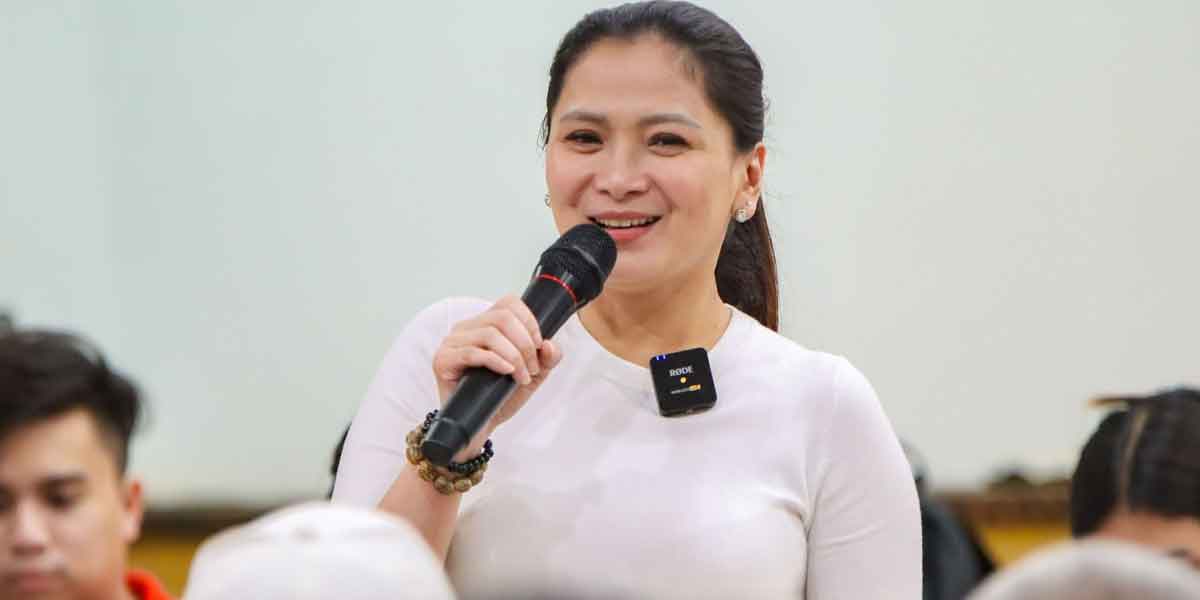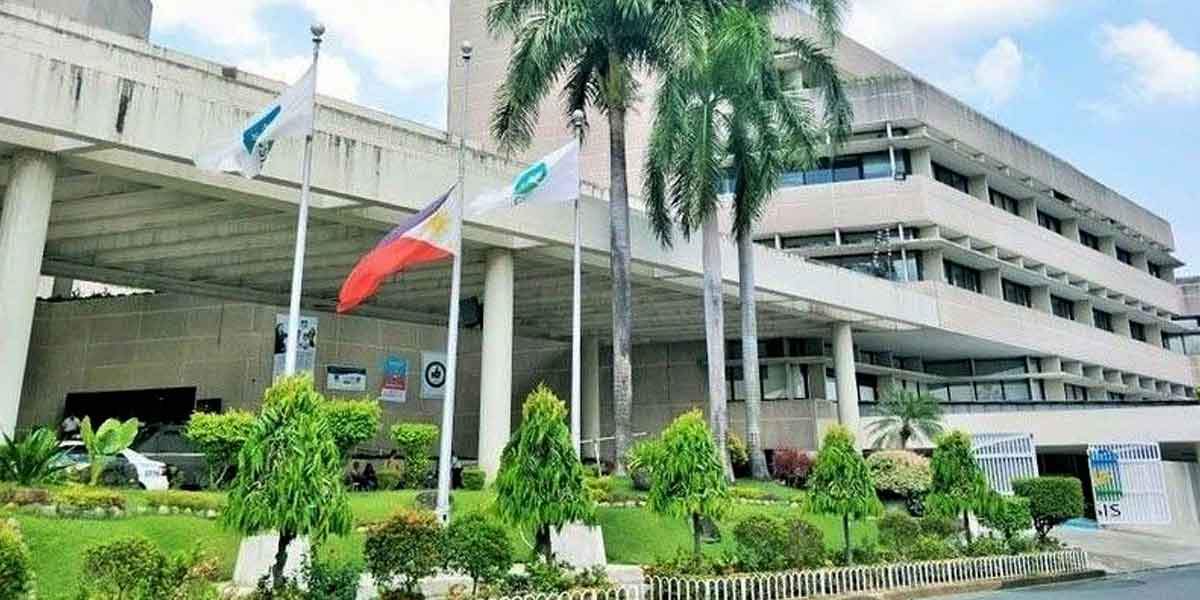
By Emme Rose Santiagudo
Gemma (not her real name), a 36-year-old female registered nurse from Tigbauan, Iloilo lost her job amid the coronavirus disease 2019 (COVID-19) pandemic.
She was also suffering from depression for years now. Two weeks ago, she decided to take her own life, the latest suicide case in Iloilo province amid the global health crisis.
“She has been suffering from depression for years now. She is staying with our bedridden father and our sister with an early-child syndrome. Due to COVID-19, she lost her job recently,” Gemma’s sister Dorothy said in a radio interview.
Gemma’s tragic story is part of a bigger narrative dominated by the COVID-19 crisis.
While local government units (LGUs) in the region are expending vital resources to curb the spread of COVID-19, a silent but deadly killer has challenged authorities to come up with solutions to address another wave of health crisis.
In Iloilo province, deaths caused by suicide are higher compared to the COVID-related fatalities.
From January to June 21, 2020, the Iloilo Police Provincial Office (IPPO) has recorded 39 suicide incidents.
Also, 24 towns in the province reported suicide incidents, with Cabatuan and Oton topping the list with three suicide incidents followed by Mina, Tigbauan, and Passi City with two suicide cases.
The towns of Ajuy, Anilao, Balasan, Banate, Barotac Viejo, Batad, Calinog, Dumangas, Estancia, Guimbal, Igbaras, Maasin, Miagao, Pototan, San Dionisio, San Rafael, Santa Barbara, Sara, and Tubungan each recorded one suicide incident.
COVID-19, SUICIDE, AND OTHER MENTAL HEALTH ISSUES
Police Master Sergeant Francisco Lindero, spokesperson of the IPPO, expressed alarm over the sudden increase in suicide incidents in Iloilo province.
“Although suicide cases recorded in the province this year were lower compared to the 78 cases recorded last year, we are still alarmed by consecutive incidents in Iloilo province. From June 8 to June 12, we recorded four suicide incidents in one week,” he told Daily Guardian.
The most affected age group is 30 to 39 years old.
Investigation reports by police indicate that the main cause of suicide incidents in the province is depression.
“Gina-indicate sang aton investigation reports nga depression ang main cause of suicide incidents. Depression may be caused by several factors such as love problems, family problems, sickness,” Lindero said.
Isolation brought about by the quarantine, including the restrictions on the movement of people, may have a direct effect on the mental health of vulnerable individuals, according to Lindero.
“Nakita naton asud-asud gid ang gakatabo nga suicide, isa pa na nga natan-aw naton ang effect sang quarantine kon sa diin ang mga kabataan naton and kapamilya ginalimit ila movement, wala sila sing iban nga leeway nga marelease ila hibubun-ot, that’s only our assumption,” he said.
Dr. Bea Camille Fillaro-Natalaray, medical coordinator for mental health of Department of Health in Western Visayas (DOH-6), explained that suicide is complex and multifactorial as it can be caused by several factors such as genetics, behavioral, and environmental factors like COVID-19.
Natalaray noted that environmental factors can be a stressful and traumatic experience for people of all ages.
“It is an adverse experience for teenagers and everyone. Indi lang teenagers, everyone is affected of COVID-19. Gina-emphasize gid naton nga it is normal and common to feel stressed and worried because this is a new and traumatic experience para sa aton,” she explained.
The pandemic also caused stressors such as fear of being infected; travel restrictions; financial pressure due to unemployment; cancellation of classes; and even physical, psychological, or sexual abuse at homes.
Globally, experts have warned that the pandemic will cause another wave of health crisis in the form of psychological and mental-health problems such as depression, anxiety, and suicide.
In an article in the Washington Post entitled, “The coronavirus pandemic is pushing America into a mental health crisis,” authorities warned how global diseases may cause another shadow of pandemic of psychological and societal injuries.
“When diseases strike, they cast a shadow pandemic of psychological and societal injuries. The shadow often trails the disease by weeks, months, even years. And it receives a scant attention compared with the disease, even though it too wreaks carnage, devastates families, harms, and kills.”
The article reiterated the strong link between economic upheaval and suicide and substance use.
A study of the Great Recession that began in late 2007 showed that for every percentage point increase in the unemployment rate there is a 1.6 percent increase in suicide rate.
“Based on such estimations, Meadows Mental Health Policy Institute suggests that if unemployment amid the coronavirus pandemic rises up to 20 percent – to levels recorded during the 1930s Great Depression, suicides could increase by 18,000 and overdose deaths by more than 22,000.”
ACCESS TO HEALTHCARE
As COVID-19 batters the healthcare systems of LGUs, limited access to mental healthcare services and providers also pose a challenge to people who are suffering from mental illnesses.
For this reason, the health department targets to increase the mental resilience of the community by providing access to mental healthcare services and psycho-social support.
Physical and mental resilience are among the objectives of the health department in its rehabilitation and recovery plan for COVID-19 in the region, according to Dr. Natalaray.
“Kita ga-focus lang kita sa physical health, ginalipatan naton ang mental health because of Covid-19. Ang aton objective is to increase our mental resilience,” Natalaray said.
In Western Visayas, DOH-6 has trained 89 mental health and psycho-social support providers assigned in LGUs.
Apart from this, 387 trained health personnel stationed in LGUs can provide mental healthcare services for persons experiencing depression, anxiety, and mental health problems.
“It is important that we establish mental health and psycho-social support para may access nga help aton individuals experiencing stress and depression,” Natalaray said.
Natalaray also underscored the need for Provincial Health Offices (PHOs) and City Health Offices (CHOs) to establish their own mental health and psychosocial support hotlines.
So far, only the provinces of Capiz, Antique, and Iloilo City have established their support hotlines: 09661665255/09283418475 (Antique MHPPSS Hotline); 09219912064/09162411596 (Capiz MHPSS Hotline); (033) 315-3012 (Iloilo City Mental Health and Psychosocial Support Group).
DOH-6 is also preparing to start online courses for additional mental health and psycho-social support providers.
The increase on suicide incidents in Iloilo province also prompted IPPO to create a Suicide Prevention Core-Group to focus on addressing the mental health concerns in the province.
Lindero said they are maximizing their online platforms through information and education campaign materials aimed at promoting mental health.
“Subong gina-ubra namon gina-improve namon IEC online materials, indi man kami kapulong-pulong sa barangay because of social distancings o all we can do is maximize internet,” he said.
Among the plans is to establish help desks in addressing concerns against suicide and other mental health problems.
IPPO has already started accounting personnel who have background on psychology and social training to undergo training on mental health and psycho-social support.
PSYCHOLOGICAL DEVELOPMENT
After recognizing the effects of quarantine and Covid-19 to the mental health of teenagers and displaced Overseas Filipino Workers (OFWs), Iloilo Governor Arthur Defensor Jr. included psychological development as part of the recovery plan of the province.
The governor tapped the Provincial Social Welfare and Development Office (PSWDO) to come up with a counselling initiative through the Psychosocial Response for Ilonggos towards More Resilient Mind and Emotion or “PRIME”.
“We have this PRIME to serve as an intervention and provide access to counselling especially to teenagers. This will be done in partnership with our LGUs,” he said in a media interview.
The provincial government is also looking at partnering with the Department of Education (DepEd) on opening up teen centers to provide counselling to teenagers.
“If we won’t have face-to-face classes, we can provide counselling through our teen centers. Counselling can help those who are vulnerable especially displaced workers to cope with stress,” he said.
ART FOR HEALING IN BARANGAYS
In Iloilo City, private institutions, art, and academe sector are teaming up to come up with strategies on linkage building, capability building, and coping mechanisms to address mental-health problems through art forms.
University of San Agustin Professor Eric Divinagracia, a member of the Technical Working Group for Mental Resilience, said the initiative has been brought to the attention of Mayor Jerry Treñas who expressed his support in helping the group craft programs to address the mental health concerns.
“It was an initiative of the private sector and I was invited by the mayor to come on board as part of the art sector. The group saw the need to provide solutions on mental problems that have arisen due to the quarantine and lockdown,” Divinagracia told Daily Guardian.
The plan is to establish creative hubs in barangays and invite artists in residence to perform and create through online and offline platforms – from visual arts, music, art therapies, drawing, and theater among others.
Divinagracia cited an example of “theater for healing” where the production centers on teaching teenagers address issues that trigger them and provide them with solutions to address their problems.
“We have a production entitled ‘Shookt’. Gintudluan namon ang mga kabataan to address issues that trigger them, we made them aware and encourage them with solutions to address the problems. During the presentation ginapakita ang mga coping mechanism and skills in an entertaining way,” he said.
Through art forms, Divinagracia said they hope to help teenagers and the public cope with stress and anxiety through self-expression.
“Self-expression is very important. We have been isolated ourselves from the community and that takes so much, anxiety, fear, iban indi maka-process. It is very important that we invest on this and we make available online and offline platforms,” he said.
The group is also working on promoting the “Ginhawa Culture” or physical breathing and breathing in terms of becoming aware with one’s emotion and one’s mindfulness.
“The group is planning to partner with the Archdiocese of Jaro to introduce a prayer of breathing and incorporate breathing exercises,” Divinagracia said.
The group already started conceptualizing a framework for the online and offline projects towards promoting mental health.
Mayor Jerry Treñas said he will help the group address mental health issues.
“Suicide cases nowadays are very rampant, especially that we are still struggling to survive on the effect of this pandemic. That is why they named this program as GINHAWA to help every individual to breathe and survive with their mental struggles, anxiety, and depression. We are doing this because we care for the mental health of every Ilonggo. The Iloilo City Government is willing to do what it takes to pursue this project to save lives,” he said via Facebook.
Meanwhile, the health department reminded the public especially parents to be wary of suicide warning signs such as online posts/hints of wanting to die; looking for ways to kill themselves; feeling anxious and having troubles in sleeping or sleeping too much; and self-isolation.
“Kita sa aton panimalay, kon may makita kita nga amo na, don’t hesitate to talk about suicide. Don’t leave them alone and remove things nga pwede nila magamit to harm themselves such as fire arms, alcohol, medicines, sharp objects, and ropes which they can use to commit suicide,” Natalaray said.
For those who need mental healthcare and psychosocial support, you may contact the following hotlines of the health department: 02-894-COVID (02-894-26843/1555) DOH COVID-19 Hotline Emergency Center; (033) 332-2575 DOH-WV-CHD Operations Center; 09178998727 (USAP) 09179898727 (USAP).
Meanwhile, teenagers may also visit the social media accounts of AHConnect in Facebook, Twitter, and Instagram. You may also call their hotlines, 09985324047, 09177759256, 09255469919 and email dohro6ahconnect@gmail.com.




















